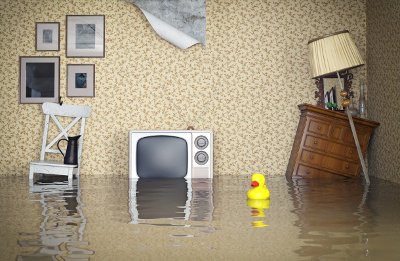Buying a house is a huge decision and one of the biggest investments you’ll ever make.
And, since plumbing is key to how a home functions now and in the future, you want to make sure you understand what you are actually buying and what might be required to get the house into shape.
Maybe you’ve found a home that is in the perfect location and looks great on the outside, you also need to know what’s going on under the floors and behind the walls.
Selecting a home with many plumbing issues could cost you thousands down the road, and add significant stress to your life.
Here are a few features of a home’s plumbing system that are important to check before buying….
Water heater
Water heaters have an average lifetime of ten years. After that, they can develop leaks in the water supply lines, or worse, the tank itself.
Older water heaters can also explode in the event the pressure relief valve is not functional. Be sure to investigate the water heater and the surrounding area for leaks or cracks.
Asking if the water heater is hooked up to the home’s heating system is important as well. If the water heater is hooked up to the heating system, it will shorten the water heater lifespan.
Sewer lines
A sewer line check is critical before buying a home and one that must be handled by a professional. The pipes that pass underneath the street and link the home with the sewer can deteriorate over time or be damaged by tree roots.
Having a plumber check the sewer line with a camera is an important part of your home inspection. If there is a problem, you need to be aware of it because sewer lines are buried relatively deep underground and are expensive to repair or replace.
Water shutoff valves
Homes have a number of water shut off valves attached to fixtures and appliances including: toilets, faucets, dishwashers, washing machines, and water heaters.
These are vital in stopping the flow of water to an appliance in case of a plumbing emergency.
If a shutoff valve is not functional, the only way to stop water from flooding your home in an emergency is to turn off all the water to the house.
That’s why having the individual shutoff valves inspected – as well as the main shutoff valve for the home –is so important.
Pipes
When examining your home, a plumber should be looking at the pipes for:
- Cracks
- Leaks
- Previous water damage
Hidden or Past Leaks
Sometimes there may be a problem going on behind the wallsor under the floor. That’s why it’s important to look at the home and detect potential hidden leaks.
A good home inspection will include looking at potential signs that there is a leak inside the walls. If this is suspected there are high-tech tools that can be used to detect the presence of water and source a possible problem.
Also, it’s important to look for signs that there was a previous leak or flooding incident. Warped flooring or buckled baseboards are often indicators that water has been present.
Water Discoloration
Discolored water is important to notice so you understand the potential need for home filtration or pipe replacement. It can also be a temporary condition, but it’s important to know the cause, what might be required to fix it, and the potential cost.
Temporary discoloration can be affected by work being done on water lines and this usually clears in a few minutes. But if the water remains discolored, you’ll want to know the cause before you buy.
Lead Pipes
In older homes, there are still a number of lead pipes lurking around that have yet to be replaced.
Lead is dangerous to the health of anyone who comes in contact with it, especially if there are young ones in your household. Identifying lead pipes is important to preserve the health of you and your loved ones, so they can be replaced.
Getting ready to buy or sell a home?
Contact the experts at Agentis — we’re experienced in inspecting all aspects of your plumbing and diagnosing potential problems.

